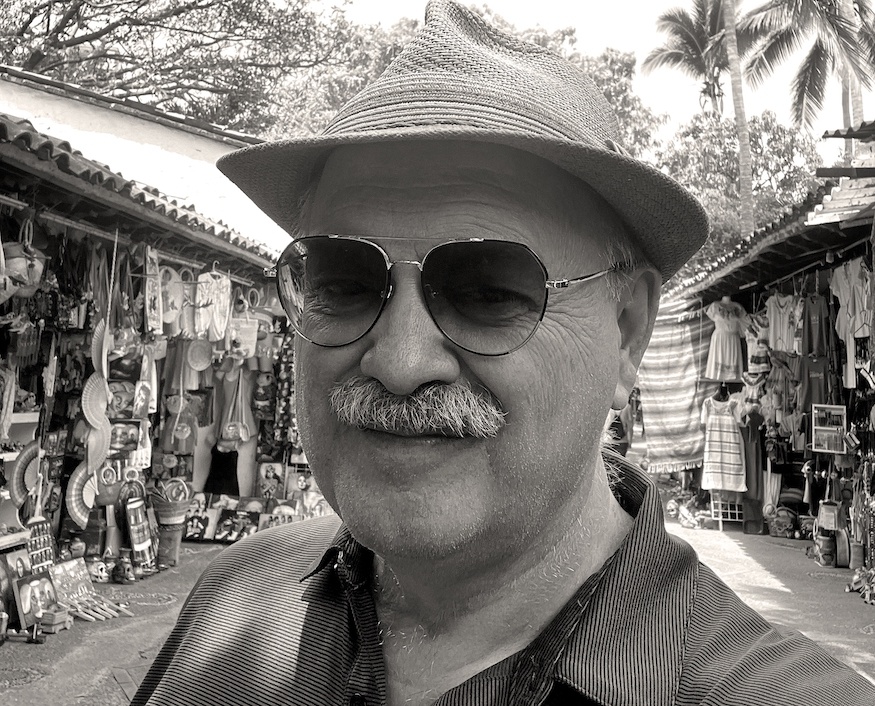
As we saw in Three Minute Hero, reluctant investigator Luke Fischer is a bit of a wayward soul, who has emerged from the Canadian prairies to fight crime across North America – sometimes through the bottom of a beer glass – all described in Craig Terlson’s literary prose, which is juxtaposed somewhat with Fischer’s general MO. Based in Winnipeg, Manitoba, on the eastern edge of the prairies, Craig started out as an illustrator before embracing his passion for writing in the 1990s. After dabbling in the literary and magical realism genres, he gravitated towards crime fiction, and that was it. He was hooked.
This month, he has reprinted the first Luke Fischer novel, Surf City Acid Drop, adding some new material and giving readers who have discovered the character more recently the opportunity to witness his genesis, so to speak. The next Luke Fisher story was Manistique, followed by Three Minute Hero last year. We decided to chat with the congenial Canadian author about Luke, the book and why crime fiction from his country is so… different.
What are crime fiction lovers going to love about Surf City Acid Drop?
If they love a story set in a hot place, and enjoy spicy food, drinking, and fighting, then they’ll have a good time. One reader called the humour in the novel “addictive”—I hope others find that. It’s a helluva lot of fun. Oh, and it also introduces a character named Mostly Harold, who has become a fan-favourite.
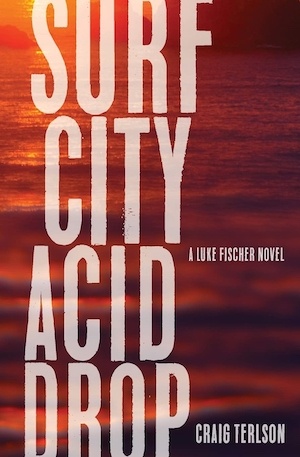
For those who’ve not met him, who is Luke Fischer and what’s his story? How did you come up with this character?
Luke wandered out of the Canadian prairie, sparred for a while in Montreal, and ended up in Mexico. When we first meet Luke, he’s enjoying the sunsets, the beers, and the surfy-ocean vibes. He’d be happy just doing that, but he’s also very good at finding people. This skill leads to some employment opportunities. The character came out of my love for those 70s anti-hero detectives like Jim Rockford or Elliot Gould’s turn at playing Marlowe in Altman’s The Long Goodbye.
What’s he up against in Surf City Acid Drop?
Luke works for a man named Benno, who pays his hotel and significant bar bill. In this novel, Luke comes upon a dead junkie in his hotel room and worries that the local police will connect him to the crime. A woman hires Luke to find her missing brother, and he takes the opportunity to exit Puerto Vallarta in a hurry. Mr Fischer clocks a lot of miles across North America, trying to put the puzzle together before someone puts a bullet in him.
You’ve just republished it – what does the new printing offer readers?
Next year will be the 10th anniversary of Surf City Acid Drop. I wanted to put out a new version for some time, to be honest, with better line editing—but I also wanted to reflect on the character and offer my readers something extra. This edition has three all-new introductions, including a killer essay on detective-noir fiction from the writer, Thomas Trang. It also has an excerpt from the next Luke Fischer book, Sayulita Sucker, which follows Three Minute Hero, and will be out next year.
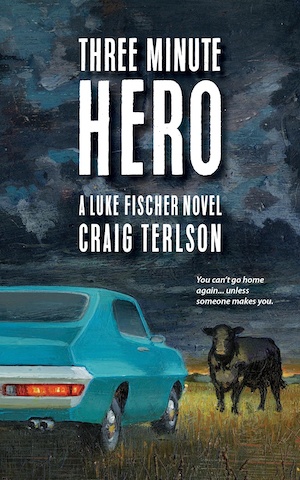
We saw that in Three Minute Hero that you love a good road trip. Where will we see Luke go here and how have you used all these different settings in your storytelling?
Since I’ve done so many trips myself, yes, I do love a good road book. I treat the landscape the players inhabit as another character. Mexico has always been a special to me, and my two favourite US states are New Mexico and Michigan, which was the setting for Manistique. Luke usually goes where I’ve been.
Do you have future plans for Luke?
Each book tells me a bit more about Luke, what drives him forward, what he’s running from and why. In some ways, I’m just following along to see where he goes and who he punches next.
Which crime authors and/or books do you admire most, and why?
I came late to crime books. But in the last decade, I’ve schooled up. I love classic writers like John D MacDonald and his Travis McGee books. I also discovered the lyrical prose of James Lee Burke, the humour of Joe Lansdale, and the kick-ass style of James Crumley. Most recently I’ve become obsessed with everything Charles Willeford published – he’s the closest I’ve seen to the vibe I’m after. For these writers, it’s all about character and language. For me, too.
Canadian crime fiction seems a lot quirkier, diverse and less commercial than a lot of what we see. Why is that and where do you feel you sit within the literary milieu in Canada?
In his introduction, T Trang said the Canadian humour lands the same, so maybe it’s just the free healthcare. But yes, the lens is different. I love quirky and diverse, and if it’s less commercial, so be it. Some of the most interesting crime fiction from both sides of the border, and the UK, are from smaller, independently published writers.
What’s next for you?
I don’t put out as many books as some writers, but I do spend a lot of time on them, and I’m usually working on two or three at a time. The one in the works features a character from Manistique, a female sheriff named, Sam Galliard. I’ve had a lot of people tell me she should get her own book. It seemed like a threat, to be honest.
Anything we’ve missed?
The best fish tacos in Mexico are always going to be from the street vendors. And always find a good place to watch the sunset.








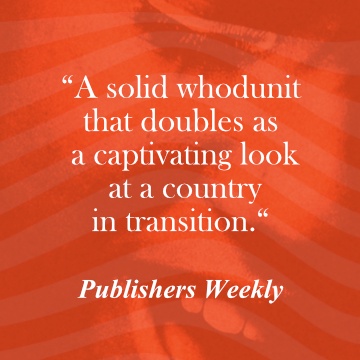
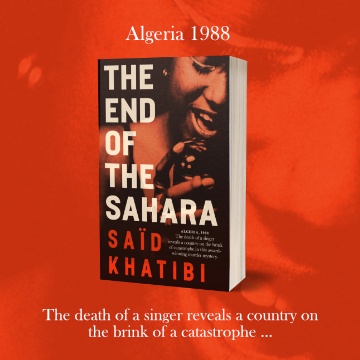
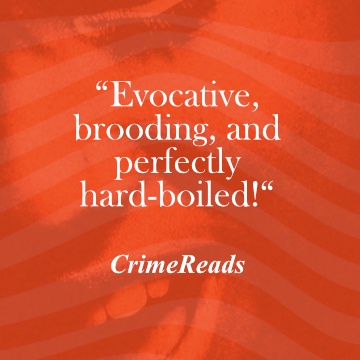
Excellent peek behind the curtain. Congratulations on Luke’s 10th anniversary.
I admire not only Terlson’s talent as a writer but also his self-promotion skills. He is a role model for all other independent writers.